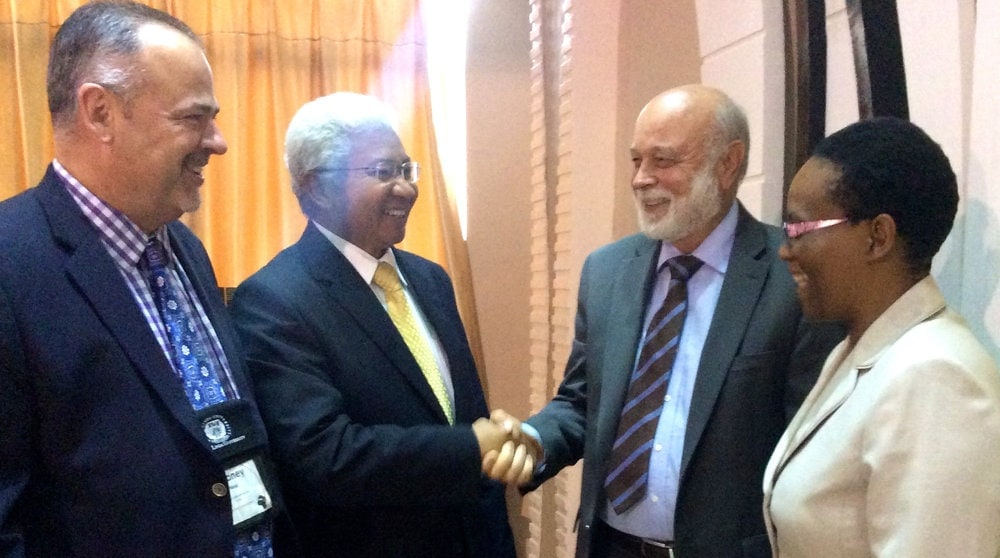
, SID
About 100 Seventh-day Adventists gathered in a dusty Zambian field scattered with sunbaked brown grass to dedicate a future healthcare facility meant to keep pace with growing demand for Adventist healthcare.
The Chalala Adventist Medical Center, located in the town of Chalala and about 5 miles (8 kilometers) from the capital, Lusaka, will be the fourth Adventist health facility in the area after the Lusaka Eye Hospital, Lusaka Dental Clinic, and Lusaka Adventist Clinic.
“We praise God that we were able to secure such prime residential land so close to the nation’s capital, where demand for our services will be high,” said Harrington Akombwa, president of the Adventist Church in Zambia.
The city of Lusaka donated the 10-acre (7.5-hectare) plot of land to the Lusaka Eye Hospital a decade ago.
The plan for the medical center grew from a proposal by Adventist Health International, which manages the Lusaka Eye Hospital, to use the land to establish a multispecialty medical center that would broaden the range of medical services that the Adventist Church was offering in Lusaka.
Adventist Health International, a nonprofit corporation based in Loma Linda, California, that manages more than 90 church-owned hospitals and clinics in about 20 countries, covered the costs of installing infrastructure for the new medical center.
Half of the $1 million cost of constructing the center’s first stage — a one-story building that will offer general medicine, pediatric, ophthalmology, dental, laboratory, and pharmacy services — was bequeathed by a graduate of Loma Linda University.
Construction will start once the remainder of the funding is determined. No completion date has been set.
The medical center’s operating profits are expected to finance future stages of its development, including the construction of a medical and surgical hospital, and support a number of highly used but less profitable regional hospitals located in rural areas.

The medical center is expected to be swamped with patients. Demand for Adventist healthcare is increasing in Lusaka because of the expanding population and the good reputations of the three existing facilities, church healthcare leaders said.
While finding patients may not be difficult, church leaders say it is challenging to attract Adventist doctors to denominational employment.
“Many of our church members who are health professionals have expressed a desire to contribute toward the mission of the church, but working full time for us is not always desired or possible,” Akombwa said.
He did not elaborate, but he said the church was considering “new and innovative ways to attract new professionals into health ministry without requiring doctors to resign from their current employers.”
Richard H. Hart, president of AHI and Loma Linda University, and Peter N. Landless, director of health ministries for the Adventist world church, offered words of encouragement at the on-site dedication ceremony witnessed by around 100 healthcare leaders and professionals from southern Africa and the United States this week. Paul Ratsara, president of the Southern Africa-Indian Ocean Division, which includes Zambia, offered the prayer of dedication.
The ceremony took place at the conclusion of the church’s first regional health conference, which gave birth to plans to explore the creation of a division-wide healthcare system.
“The time is right for southern Africa to benefit from integration,” Hart said at the conclusion of the Global Health Conference in Lusaka.
Ratsara said integration would create greater economy and efficiency in purchasing, financial accounting, IT, and human resources management, and give staff greater career prospects in the division’s 15 hospitals and health centers, 24 clinics, and 22 dispensaries.
“It will give an enhanced sense of belonging to our valued staff,” Ratsara said.